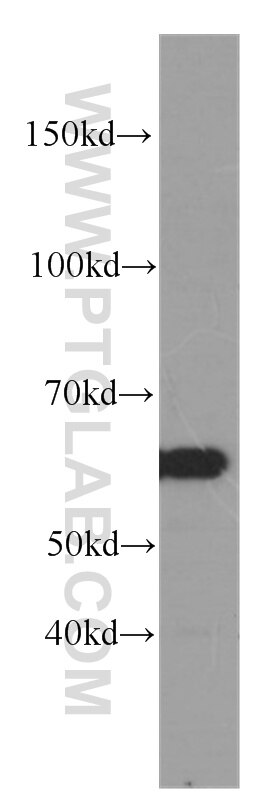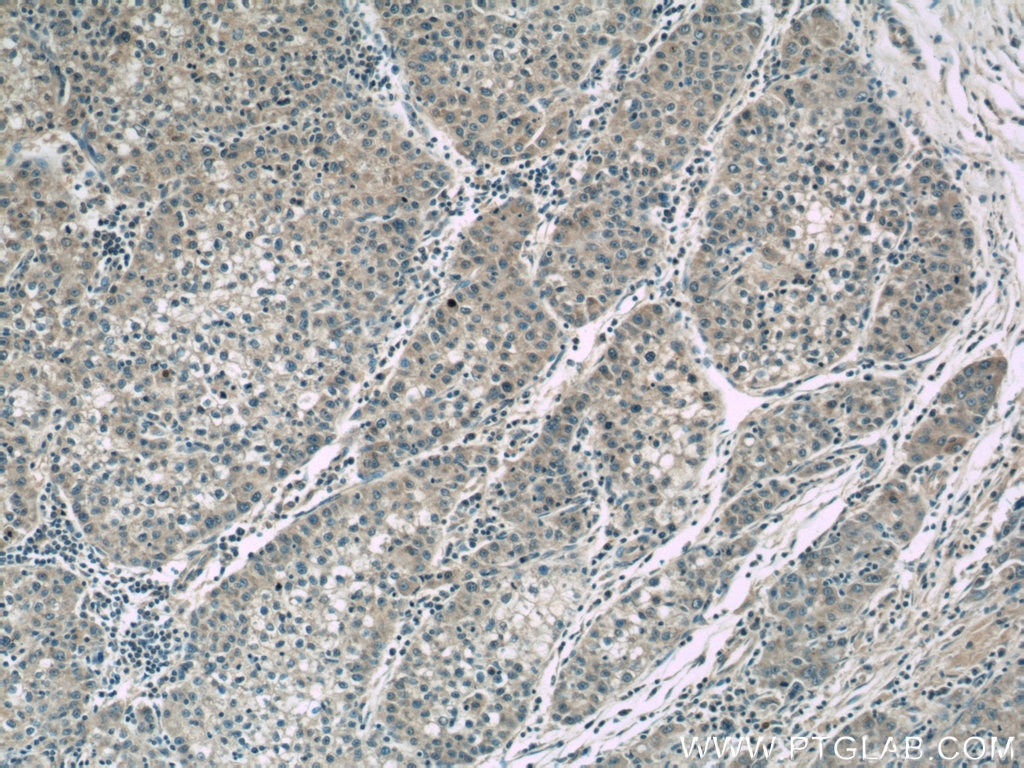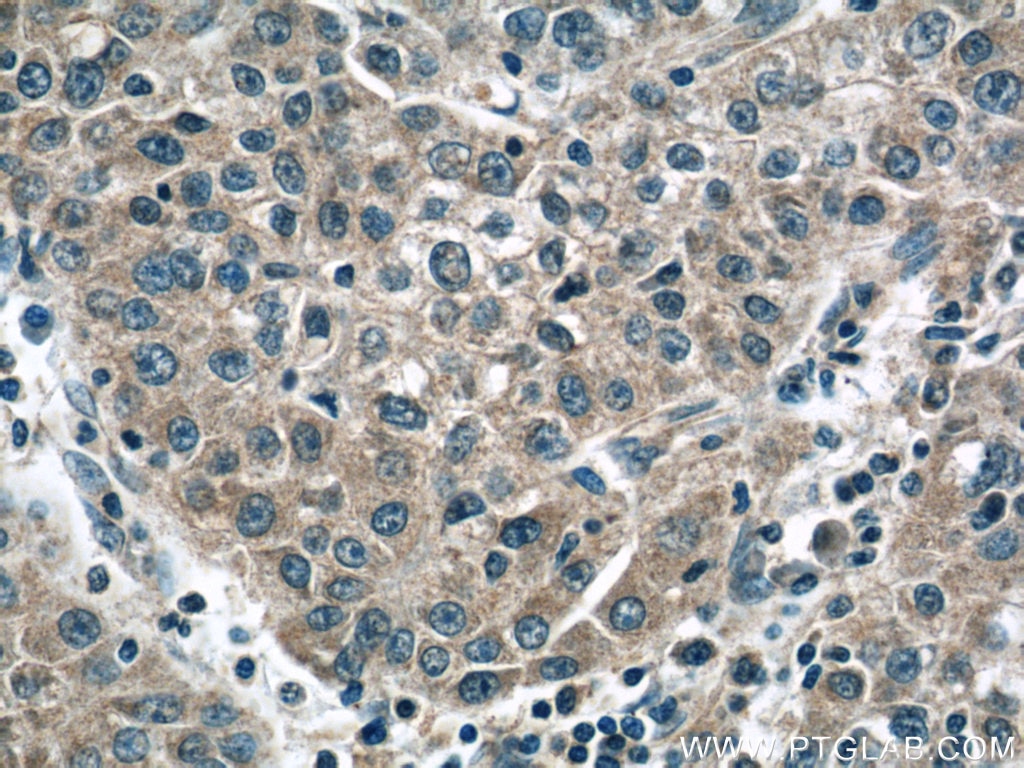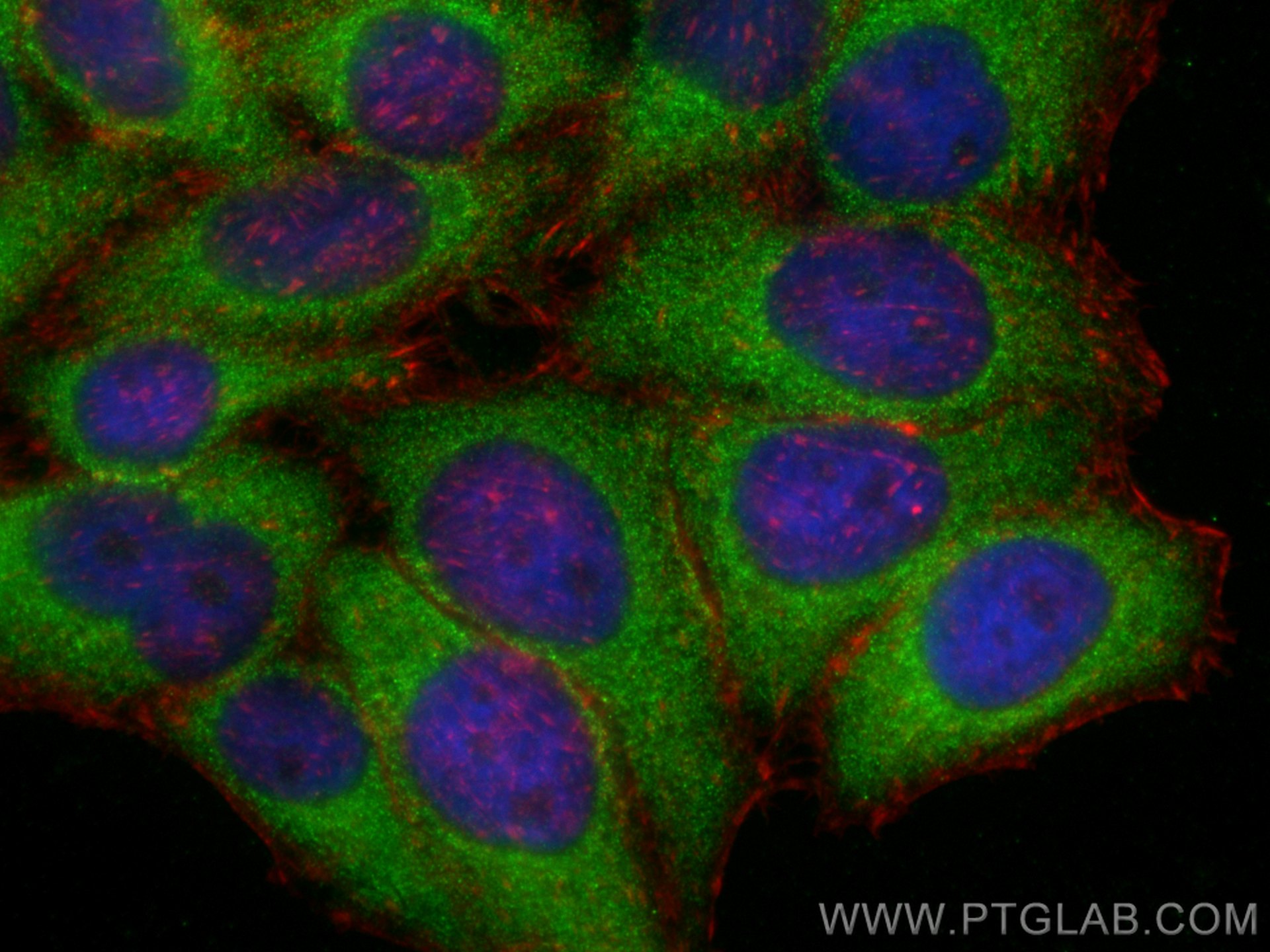Tested Applications
| Positive WB detected in | COLO 320 cells |
| Positive IF/ICC detected in | HepG2 cells |
Recommended dilution
| Application | Dilution |
|---|---|
| Western Blot (WB) | WB : 1:500-1:2000 |
| Immunofluorescence (IF)/ICC | IF/ICC : 1:400-1:1600 |
| It is recommended that this reagent should be titrated in each testing system to obtain optimal results. | |
| Sample-dependent, Check data in validation data gallery. | |
Published Applications
| WB | See 2 publications below |
| IF | See 2 publications below |
| CoIP | See 1 publications below |
Product Information
60264-1-Ig targets CCT3 in WB, IF/ICC, CoIP, ELISA applications and shows reactivity with human, mouse samples.
| Tested Reactivity | human, mouse |
| Cited Reactivity | human, mouse |
| Host / Isotype | Mouse / IgG2b |
| Class | Monoclonal |
| Type | Antibody |
| Immunogen |
CatNo: Ag0843 Product name: Recombinant human CCT3 protein Source: e coli.-derived, PGEX-4T Tag: GST Domain: 246-545 aa of BC006501 Sequence: EYKKGESQTDIEITREEDFTRILQMEEEYIQQLCEDIIQLKPDVVITEKGISDLAQHYLMRANITAIRRVRKTDNNRIARACGARIVSRPEELREDDVGTGAGLLEIKKIGDEYFTFITDCKDPKACTILLRGASKEILSEVERNLQDAMQVCRNVLLDPQLVPGGGASEMAVAHALTEKSKAMTGVEQWPYRAVAQALEVIPRTLIQNCGASTIRLLTSLRAKHTQENCETWGVNGETGTLVDMKELGIWEPLAVKLQTYKTAVETAVLLLRIDDIVSGHKKKGDDQSRQGGAPDAGQE Predict reactive species |
| Full Name | chaperonin containing TCP1, subunit 3 (gamma) |
| Calculated Molecular Weight | 60 kDa |
| Observed Molecular Weight | 56-60 kDa |
| GenBank Accession Number | BC006501 |
| Gene Symbol | CCT3 |
| Gene ID (NCBI) | 7203 |
| RRID | AB_2881385 |
| Conjugate | Unconjugated |
| Form | Liquid |
| Purification Method | Protein A purification |
| UNIPROT ID | P49368 |
| Storage Buffer | PBS with 0.02% sodium azide and 50% glycerol, pH 7.3. |
| Storage Conditions | Store at -20°C. Stable for one year after shipment. Aliquoting is unnecessary for -20oC storage. 20ul sizes contain 0.1% BSA. |
Protocols
| Product Specific Protocols | |
|---|---|
| IF protocol for CCT3 antibody 60264-1-Ig | Download protocol |
| IHC protocol for CCT3 antibody 60264-1-Ig | Download protocol |
| WB protocol for CCT3 antibody 60264-1-Ig | Download protocol |
| Standard Protocols | |
|---|---|
| Click here to view our Standard Protocols |
Publications
| Species | Application | Title |
|---|---|---|
Front Cell Dev Biol Usher syndrome proteins ADGRV1 (USH2C) and CIB2 (USH1J) interact and share a common interactome containing TRiC/CCT-BBS chaperonins | ||
Front Cell Dev Biol The BBS/CCT chaperonin complex ensures the localization of the adhesion G protein-coupled receptor ADGRV1 to the base of primary cilia |










